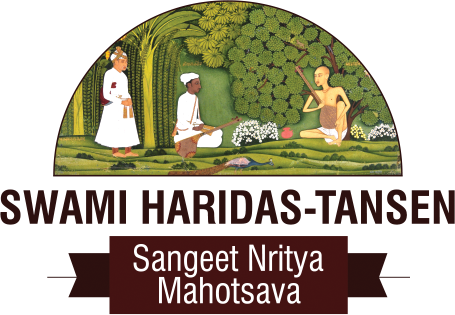
Pt. Vishwamohan Bhatt (Mohan Veena)
Pt. Salil Bhatt (Satvik Veena)
Ustad Shujaat Khan (Sitar)
Vidushi Ashwini Bhide Deshpande (Vocal)
Ustad Amaan Ali Bangash (Sarod)
Pt. Ulhas Kashalkar (Vocal)
Pt. Hariprasad Chaurasia (Flute)
Uma Sharma (Kathak)
Pt. Rahul Shivkumar Sharma (Santoor)
Begum Parween Sultana (Vocal)
Pt. Vishwamohan Bhatt (Mohan Veena)
Creator of the Mohan Veena and the winner of the Grammy award, Vishwamohan Bhatt is an Indian Classical instrumentalist.
He was born into a musical family in Rajasthan and began his musical training as a Sitar player under his father, who ran a music school. Being the foremost disciple of Pt. Ravi Shankar, Vishwa Mohan belongs to the elite body of musicians which trace its origin to the Mughal emperor Akbar's court musician Tansen and his guru the Hindu Mystic Swami Haridas.
Vishwamohan Bhatt has attracted International attention by Indianizing the Hawaiian Guitar with perfect assimilation of the Sitar, Sarod and Veena techniques, by giving it a revolutionary design and shape by adding 14 additional strings. With blinding speed and faultless legato, Bhatt is undoubtedly one of the most expressive, versatile and greatest slide players of the world.
His latest creation is a new instrument, the Vishwa Veena, which has 35 strings.
He was born into a musical family in Rajasthan and began his musical training as a Sitar player under his father, who ran a music school. Being the foremost disciple of Pt. Ravi Shankar, Vishwa Mohan belongs to the elite body of musicians which trace its origin to the Mughal emperor Akbar's court musician Tansen and his guru the Hindu Mystic Swami Haridas.
Vishwamohan Bhatt has attracted International attention by Indianizing the Hawaiian Guitar with perfect assimilation of the Sitar, Sarod and Veena techniques, by giving it a revolutionary design and shape by adding 14 additional strings. With blinding speed and faultless legato, Bhatt is undoubtedly one of the most expressive, versatile and greatest slide players of the world.
His latest creation is a new instrument, the Vishwa Veena, which has 35 strings.
"Music is the language of god created for the benefit of mankind.
To me, music is the medium to talk to god.""
To me, music is the medium to talk to god.""
- Pt. Vishwamohan Bhatt